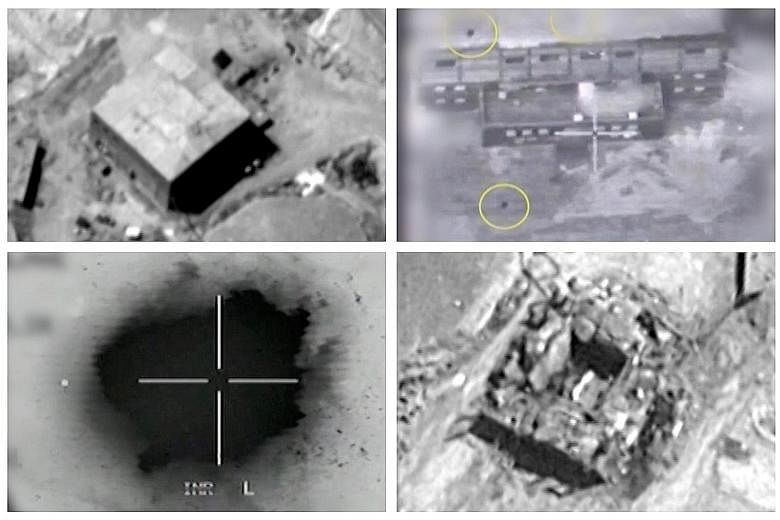JERUSALEM • Israel for the first time has admitted that it was responsible for a top secret 2007 air raid against a suspected Syrian nuclear reactor.
The strike was a warning to Iran, Israeli Intelligence Minister Yisrael Katz said yesterday .
Israel was long thought to have carried out the raid, and was even named by several countries as being responsible for it, but it has never formally acknowledged the strike or divulged details, until now.
The admission, along with the release of newly declassified material related to the raid, comes as Israel intensifies its warnings over the presence of its main enemy Iran in neighbouring Syria.
Israeli Prime Minister Benjamin Netanyahu has also repeatedly called for a landmark 2015 nuclear deal between world powers and Iran to be changed or cancelled.
United States President Donald Trump - who met Mr Netanyahu at the White House earlier this month - has said the nuclear deal must be "fixed" by May 12 or the US will walk away.
After yesterday's acknowledgement, Israeli Defence Minister Avigdor Lieberman said the raid should serve as a message for "everyone in the Middle East".
Mr Katz was more explicit. He said it showed that Israel would never allow nuclear weapons to be obtained by "countries like Iran, who threaten its existence".
The declassified material includes footage of the strike, and pictures of secret army intelligence communiques about the site.
Israel, in a military statement, detailed why it carried out the strike at the desert site in the Deir Ezzor region of eastern Syria, targeting what it says was a nuclear reactor under construction. Syria has denied it was building a nuclear reactor.
The statement said: "On the night between Sept 5 to Sept 6, 2007, Israeli Air Force fighter jets successfully struck and destroyed a Syrian nuclear reactor in development. The reactor was close to being completed. The operation successfully removed an emerging existential threat to Israel and to the entire region - Syrian nuclear capabilities."
In 2008, less than a year after the strike, the US presented what it described as intelligence that showed that North Korea had helped Syria with "covert nuclear activities". At the time, Syria dismissed the accusations as part of a campaign to discredit the Damascus government.
The United Nations atomic watchdog in 2011 said the Syrian site was "very likely" to have been a nuclear reactor, and that the information provided to it suggested it was being built with North Korean assistance.
Israel, in its new disclosures, said secrecy surrounding the strike was necessary due to the sensitive security situation, adding that it could have provoked war.
In defending the strike, it said the Islamic State in Iraq and Syria later overran much of the Deir Ezzor area, after the Syrian civil war erupted in 2011. If an active reactor had been there, it would have had "severe strategic implications on the entire Middle East as well as Israel and Syria", the statement added.
The declassified materials provide details on what is known as Operation Orchard. Four F-16 jets and four F-15 jets were involved in the strike, and 18 tonnes of munitions were dropped on the site.
Grainy footage of the strike included in the material shows a target locking on to a building that is blown apart shortly afterwards. Israel concluded that the alleged reactor was "totally disabled, and that the damage done was irreversible".
AGENCE FRANCE-PRESSE, REUTERS

